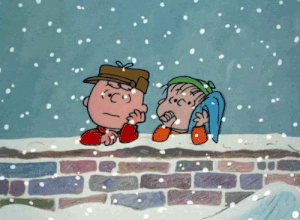
Yesterday wasn’t the best day. When I woke up, something was stuck at the back of my mouth, tickling my tongue and making me retch. On peering in, I found my uvula was the size of a wax crayon, pointing forward instead of down. Being December 25, all drop-in centres near me were shut, as was the tube, so getting an anti-inflammatory took four hours’ trudging through rain in shoes with holes in them. My feet are still blistered, and I spent the rest of the day alone in a bedsit with no oven. I could probably be forgiven for being fed up—but strangely enough, I’m doing okay.
There’s a popular view that the word ‘fine’ is meaningless, that being fine, thank you when a friend asks after you is a hollow nicety. I wrote about depression back in June, and I’ve heard other people with it say as much. That isn’t my experience at all. When your two basic emotional states are ‘at risk of self-harm’ and ‘not at risk’, fine is the best you can hope for. Fine is precious. I sometimes find myself saying my symptoms come and go. In fact they only alternate: most days, when depression isn’t making me want to die, it makes me more reliably okay than almost anyone I know.
Friday was a crap day to cap off a shit year—a year of family harassment, homelessness and political hopelessness. The art of losing isn’t hard to master, and one does one’s best: I lost family and friends in the spring, watched the left lose in May, lost a place to live in July, lost money in winter. (Thanks, all who helped.) For once, I haven’t managed to lose faith. At the moment, I feel much better than I did in June. What living with depression means for me is that my emotions aren’t linked to external events, that how okay I am doesn’t depend on what happens to me. I’m rarely happy, but I’m almost always fine.
If yesterday had been Christmas for me, I’d almost certainly have been depressed, but giving up that tradition has worked miracles for my mental health. I’m profoundly uninterested in arguing whether atheists, as a group, should do Christmas or not—as uninterested as women I know are in debating whether feminists should wear lipstick—but personally, I’ve benefitted from walking away. Ten years ago, late December was when I self-harmed most, and having a crap Christmas Day is enough to depress anybody who celebrates. A crap Friday, by contrast, is nothing tragic.
Even when I did Christmas as an atheist, I spent it craving Ordinary Time, the stretch of the church calendar from new year to Easter in which nothing particular happens. I gave it up because I prefer ordinary days. I’m okay not being happy, even mostly okay when I get stressed, but being stressed at Christmas was unbearable, because the pressure to be happy was all-pervasive, the propaganda inescapable. I got in yesterday rained on and miserable, achy and shallow-breathed, then turned up the heating, sat down and switched on Doctor Who. It was an ordinary day, and while I wasn’t happy, I was fine.
Expert at losing though I am, I like to think I’ve made an art of being okay. Nights when my brain tells me to die, I’m a crazed mess, but the upshot is that little else throws me off my game. Sane people take being okay for granted, but I’ve worked hard for it, and part of that work was quitting festivities that told me it wasn’t enough. I’d say okay deserved a festival, but perhaps the point is that I don’t really require one—that every ordinary day I have is a celebration of being okay. At any ordinary time, even the worst of times, I’m fine, and when I say so, I mean it.
* * *
I tell stories and write a blog. If you enjoy my work,
consider becoming a patron or leaving a tip.
Follow my tweets at @AlexGabriel,
keep up with my writing, or get in touch.


[…] The Art Of Being Okay […]
I think the problem isn’t being actually fine, but saying “I’m fine, thanks, how are you?” when you’ve actually been thinking about how it would be if you didn’t slow down and take that sharp bend in the road but accelerate and drive headlong into the concrete wall.
I mastered the art of “fine, thank you” and even “fantastic, and you?” to a degree that everybody was totally surprised when one day I owned up and said: “Actually, I’m not fine, I’m not OK, I’m miserable and I ahve been for the better part of the last few years. Please help me.”
If you can honestly assess “fine” for you then that’s a great skill and fine is perfectly fine.
Whishing you a speedy recovery nevertheless.
[…] “The Art Of Being Okay“–“When your two basic emotional states are ‘at risk of self-harm’ and ‘not at risk’, fine is the best you can hope for. Fine is precious.” […]